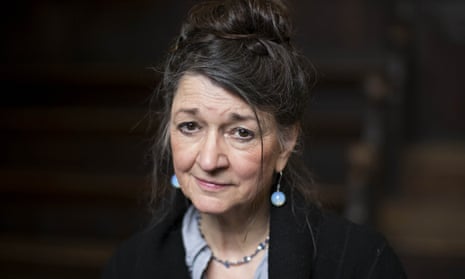A week after Midsummer night, the Royal Society of Literature brought together four writers for an event billed as a discussion of revamped fairy stories, but that turned out to encompass modernised myths, too. Introducing the forum, chair Marina Warner provided a typically scintillating tour d’horizon of a contemporary fantasy boom in which novelists such as Margaret Atwood, AS Byatt, Philip Pullman and Ali Smith rewrite myths and folk tales, Hollywood increasingly borrows its heroines and child adventurers (explicitly or ultimately) from the same sources or revisits legendary ancient history, and Greek drama about “the home life of the gods” is back in fashion. What was it about these “old stories” that attracted her panellists, as children and now, she asked, and why do they seem to connect with the 21st-century zeitgeist?
For Helen Oyeyemi, who refashioned the Snow White story in Boy, Snow, Bird, fairytales appealed as a child because of their “quests” (she cited Gerda’s in The Snow Queen) and “magical objects” such as the talking mirror in Snow White; the latter still fascinate her and are part of her fiction, she said, as “a way of thinking about objects, reimagining them”. Dubravka Ugrešić, the Croatian-born essayist and novelist, spoke of being drawn as a girl to folk tales such as Russian stories of the “hag” Baba Yaga (updated in her novel Baba Yaga Laid an Egg), followed by a more “political” awareness of their significance in being outside a “canon” dominated by white, male, western European or American authors in which “women do not fare well”; whereas they are “emancipated” and “more comfortable in the sort of illegal space they occupy in fairy stories and children’s literature”.
Guardian columnist Natalie Haynes, a classicist whose debut novel The Amber Fury draws on the Electra story, similarly offered a feminist explanation for the grip that Greek tragedy has had on her since her teenage years – she was drawn to strong heroines such as Medea, believing the infanticidal mother “was right” when she saw the play at 16 – and suggested a related reason for there being three productions of the Oresteia in the UK this year. Greek drama offers better, more central roles for women, she pointed out, than most plays written in English.
When discussion turned to the current vogue across different art forms for reviving and tinkering with old stories, it was handicapped by the fact that Warner – the only participant capable of addressing the whole range of myth and fantasy fiction – was posing the questions rather than answering them: understandably, the others mostly stuck to the one form that inspired them. Haynes, though, was prepared to propose that ancient narratives were being updated and tweaked to “impose a magical version of reality” on “parts of the world we can’t control”, things such as “random violence” or financial chaos – she had made a radio documentary linking the recent resurgence of vampires and zombies in various media to, respectively, the bankers and victims during the 2008 crash.
Oyeyemi, however, complained that one strain of myth-derived fantasy fiction was all too prevalent, and long overdue for being ditched: “I’m waiting for us to move on from superheroes who feel sorry for themselves – I think the patriarchy’s trying to trick me into feeling sorry for this superman who’s depressed because he has too much power.”
- This article was adjusted on 8 July 2015 to correct Helen Oyeyemi’s remark about superheroes.

Comments (…)
Sign in or create your Guardian account to join the discussion